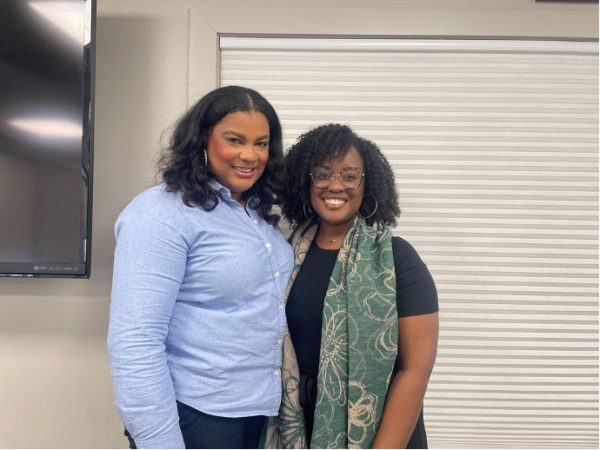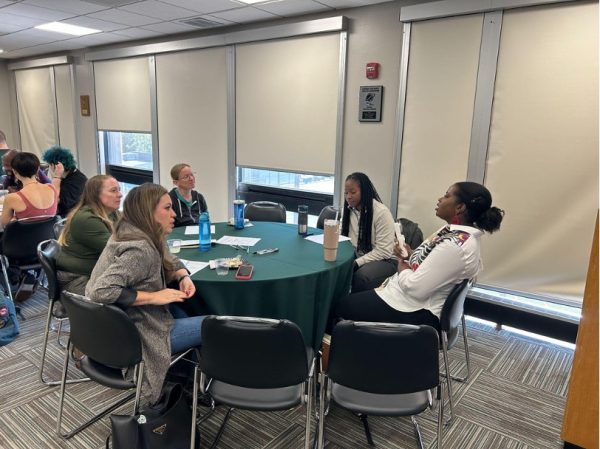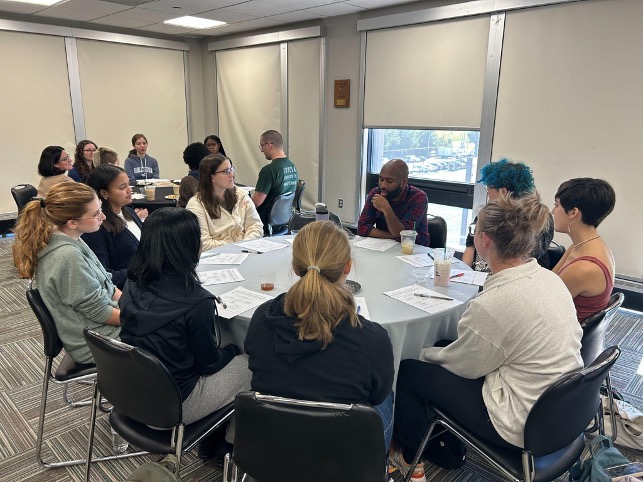Throughout the fall semester, Loyola’s Office of Equity and Inclusion is hosting a program titled ‘Cura Conversations’. This four-part series focuses on discussion-heavy events aimed at bringing awareness to students and staff on how to navigate difficult conversations regarding racial, religious, and political differences. The sessions encourage students to confront these conversations with care and compassion.
The second part of the series titled ‘Racial Harm: Exploring the Gap Between Intention and Impact’ was held on Oct. 11. This specific session focused on the complex relationship between intent and impact in addressing racial harm. This discussion included breaking down the different types of microaggressions and how to prevent that dialogue from occurring in the future. Diversity and Inclusion Specialist Rhona Little coordinated the event with various other departments on campus. Little hopes the series is an educational opportunity for students to have a safe space to speak.

“Cura Conversations really started from different departments on campus wanting to come together to start some type of initiative around dialogue. Really what we were looking for was to develop some type of dialogue series that really allowed people to tap into their compassion, their curiosity, and their care and how we use those things to form that level of inclusion, community, and belonging and things like that,” Little said.
One of the departments that coordinated the event was the Office of Human Resources. Human Resources Business Partner Kimberly Cook represented the department during the event and encouraged students to attend events like these.
“It’s important for students to be engaged because they are a part of the university as a collective. I would advise them to come share their experiences. It’s a safe space to dialogue and talk about what they’re experiencing every day,” Cook said.

Little and Cook guided the attendees in both large and small group discussions about harmful statements and prompted Loyola students and staff to share their experiences. Additionally, participants took part in a self-reflection exercise. Participants were given a worksheet to help distinguish the types of racial microaggressions and explain the harm these words possess, no matter the intent. Jujuan Lawson ‘26 found the event to be educational and informative.
“I learned a lot. One of the main things I’ll take away is that it is important to understand the context in which others live. The main way to fight against microaggressions is to be able to actively predict them, and the only way you can do that is by attempting to understand where others come from when you speak to them,” Lawson said.
Similarly, Fenrir Badorf ‘25 expressed the importance of exploring new horizons and immersing yourself in different backgrounds. Badorf drew on their experiences by urging people to get to know those with different backgrounds.
“The world, specifically America, is a lot more diverse and surprising than social media or your hometown would have you believe. The only surefire way to be a better person and be better for everyone around you is to simply immerse yourself in a wide variety of relationships, dynamics, and types of people,” Badorf said.
Attendee Jade McCoubrey ‘28 highlighted their takeaways and learning curve. This event helped McCoubrey gain some knowledge and refine their listening skills.
“The learning aspect is the most important part. There are some things that would have just slipped right over my head that now I know to pay attention to,” McCoubrey said.
The Office of Equity and Inclusion hopes to continue this series next year and expand upon it. As the diversity and inclusion specialist, Little has spearheaded various trainings and events and believes that diversity, equity, inclusion, and justice work is crucial at Loyola.
Little said, “DEIJ (Diversity, Equity, Inclusion, and Justice) work really is an opportunity to help people feel seen, heard, and valued. I realize that a lot of the influential people in my life did that for me. To be able to provide that same resource not only to our students but also to our colleagues is important. If at least when they are here on this campus and they feel seen, they feel heard, and they feel valued through our different DEIJ initiatives, I think for me, that’s a job well done.”
To learn more about the sessions that remain, click here.






































































































